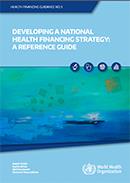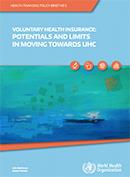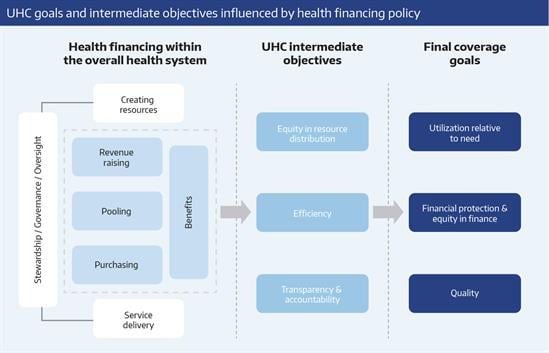Pooling revenues and reducing fragmentation
Pooling is a core function of health financing policy. The purpose of pooling is to spread financial risk across the population so that no individual carries the full burden of paying for health care. This is determined by both the overall level of prepaid resources and the structural arrangements (architecture) of pooling.
When pooling is fragmented, this sets a limit on the extent to which available prepaid funds can be redistributed, and financial risk related to health spread; as such, fragmentation is a cause of health system inefficiency.
WHO’s health financing team works with countries to design and implement health financing policies, including policies on pooling. Whatever the total level of prepaid funds, to make progress towards Universal health coverage countries are advised to work towards:
(a) larger rather than smaller pools,
(b) a more diverse risk mix within pools, and
(c) compulsory rather than voluntary pools.
Policies which focus on establishing separate social health insurance schemes, for example for formal sector workers, or small voluntary schemes such as community-based schemes, are not aligned with this approach.
While guided by global evidence, the WHO team supports countries to develop strategies which are practical and sensitive to local political, social and economic circumstances.





